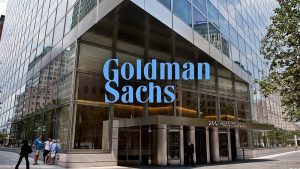
Goldman Sachs and Apple set to end credit card partnership
Tech giant Apple has notified Goldman Sachs that it intends to exit their joint credit card venture over the next 12-15 months, ending the Wall Street bank’s ambitions of expanding into consumer lending, according to an anonymous source cited in a Nov. 28 The Wall Street Journal article.
Launched in 2019, the Apple Card was the centerpiece of Goldman’s efforts to move beyond serving large corporations and wealthy clients into the mainstream consumer market. The program also included a high-yield savings account unveiled just last year.
But Goldman retreated on its consumer banking goals late last year after losing billions trying to scale up the operation. The bank has since offloaded or made plans to sell its other consumer lending businesses, including personal loans and home improvement financing through GreenSky.
For Apple, the split is a setback for its services segment, which has become vital amid slowing iPhone sales. While the Goldman card likely represented a small portion of services revenue, it was part of the company’s broader push into financial products.
Moving forward from Apple Card
According to sources, Apple has already approached American Express about potentially taking over the card program. But Amex expressed concerns about loss rates and other aspects of the product. Synchrony Financial, the largest store credit card issuer in the U.S., has also explored acquiring the portfolio.
The Goldman partnership got off to a shaky start in 2019, with Apple running ads touting the card “not from a bank” and pushing for expanded credit access, leading to higher losses for Goldman. Apple also insisted cardholders all receive statements at the same time early each month, swamping Goldman’s customer service lines.
Privately, some Goldman executives have blamed Apple’s demands for bringing regulatory scrutiny on the bank from the CFPB and Federal Reserve around its lending practices and controls. Goldman is now refocusing employees from the winding down consumer business to address regulatory issues.
With the lucrative Apple program set to leave, Goldman faces challenges keeping credit card staff engaged for the next year as it figures out severance packages and transfers for employees. The exit of Apple delivers one more blow to Goldman’s failed consumer banking venture, leaving Wall Street’s most powerful firm to refocus on its traditional strengths catering to corporations, investors, and the wealthy after its main street detour.
Featured image: By 2211473abhijithsaravanan, CC BY-SA 4.0, via Wikimedia Commons




